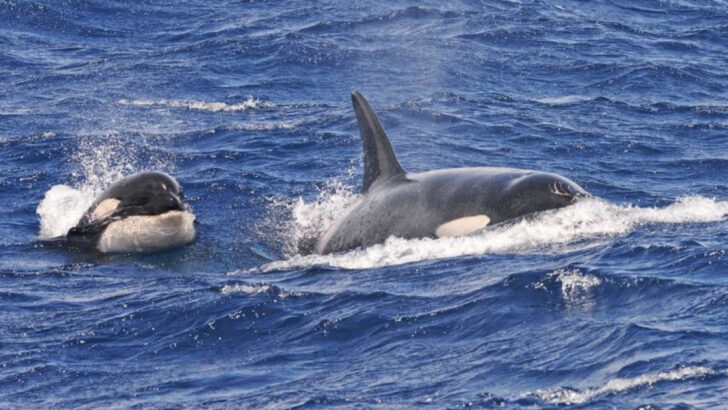Orcas aren’t just whales—they’re ocean royalty with the brains of a genius and the bite of a legend.
These creatures don’t swim through the sea; they dominate it.
One moment they’re leaping like ballerinas, the next, they’re taking down great white sharks like it’s just another Tuesday.
They strategize.
They teach.
They mourn.
They play.
Every move is calculated, every pod has its own language, and no animal on Earth blends beauty and brutality quite like them.
Want to know what makes orcas the top dogs of the deep?
Prepare to be amazed—and maybe a little scared.
Orcas’ Remarkable Communication Skills
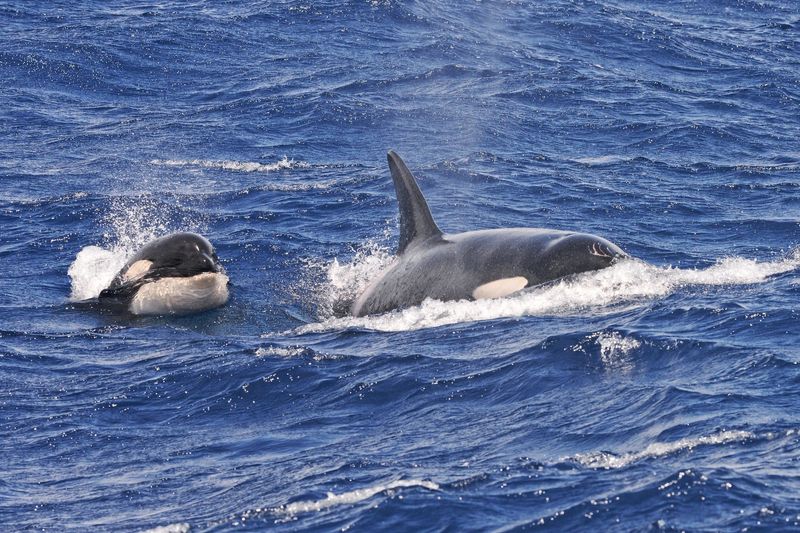
Orcas possess a sophisticated communication system that uses clicks, whistles, and pulsed calls. Each pod has its own unique dialect, allowing them to communicate and bond with one another. This complex vocalization system is vital for coordinating hunting strategies and maintaining social connections. Imagine a symphony of sounds echoing through the ocean, each note carrying meaning and emotion. These vocalizations are not only fascinating but essential for their survival, reflecting their intelligence and social nature. So next time you hear about orcas, remember their impressive ability to “talk” to each other underwater!
Hunting Techniques
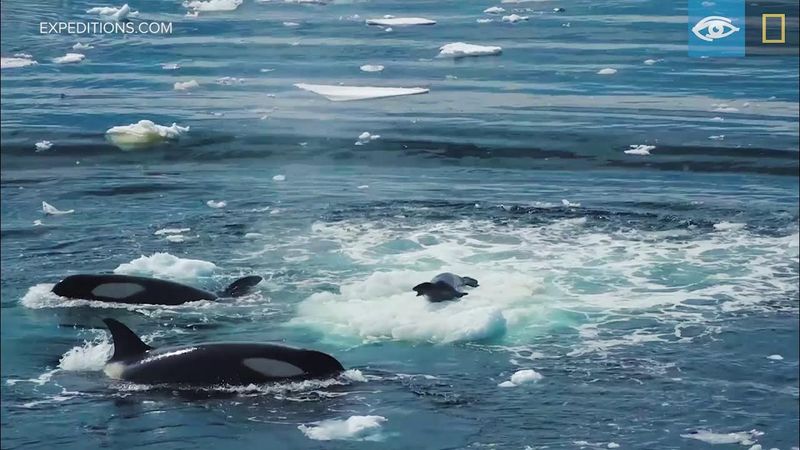
Orcas are known for their ingenious hunting methods. One of their most famous techniques is wave-washing, where they create waves to knock seals off ice floes. This cooperative behavior requires coordination and teamwork, showcasing their intelligence and adaptability. Picture a group of orcas working in perfect harmony, each one contributing to the success of the hunt. It’s a testament to their strategic thinking and ability to adapt to different environments. These hunting skills not only demonstrate their power but also their remarkable intelligence, making them one of the ocean’s most formidable predators.
Orcas’ Family Bonds
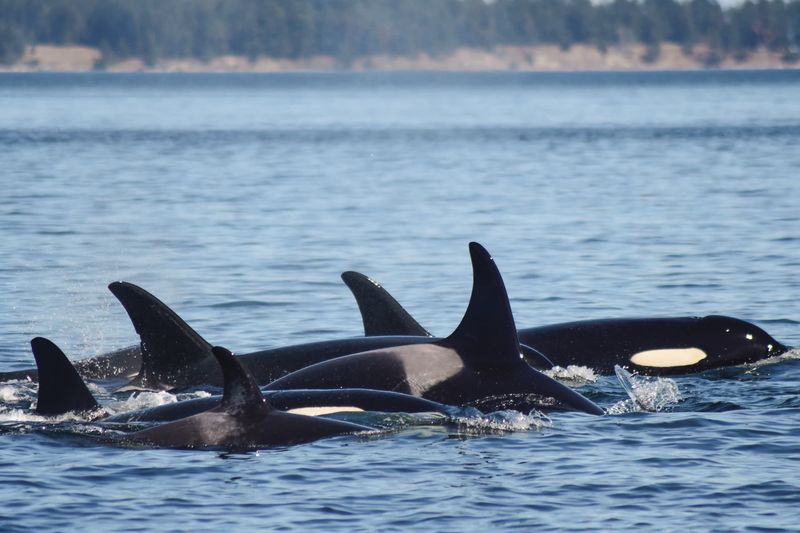
Orcas live in close-knit family groups called pods, where family bonds are incredibly strong. These pods can consist of up to 40 orcas, and members often stay together for life. The matriarch leads the group, passing down knowledge and experience to younger generations. Picture a loving family, where every member plays a vital role in their collective well-being. This deep sense of family and community is not only heartwarming but highlights their sociable and cooperative nature. Their family ties are a significant aspect of their lives, underscoring the importance of social structures in the animal kingdom.
Intelligence in Problem Solving
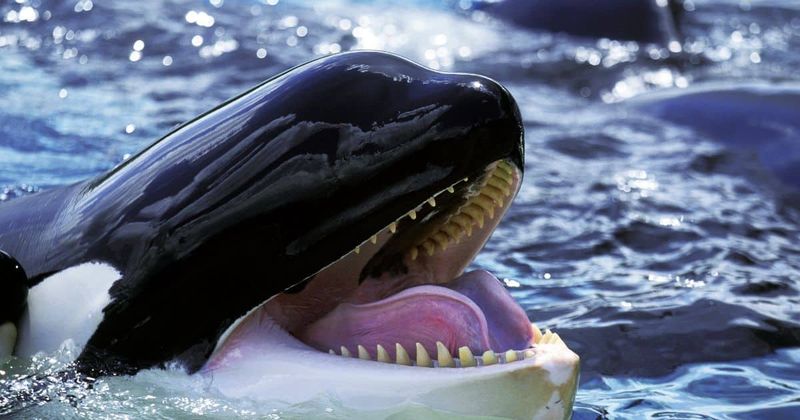
Orcas display incredible intelligence, especially when it comes to problem-solving. They are known to use innovative techniques to access food, such as working together to create distractions or using tools. Imagine an orca figuring out a puzzle with the same ingenuity as a human. Their ability to think critically and adapt to various situations is a testament to their cognitive prowess. This remarkable problem-solving ability not only highlights their intelligence but also their adaptability in the wild. Their creative approach to challenges makes them one of the most intelligent marine species.
Playful Behavior
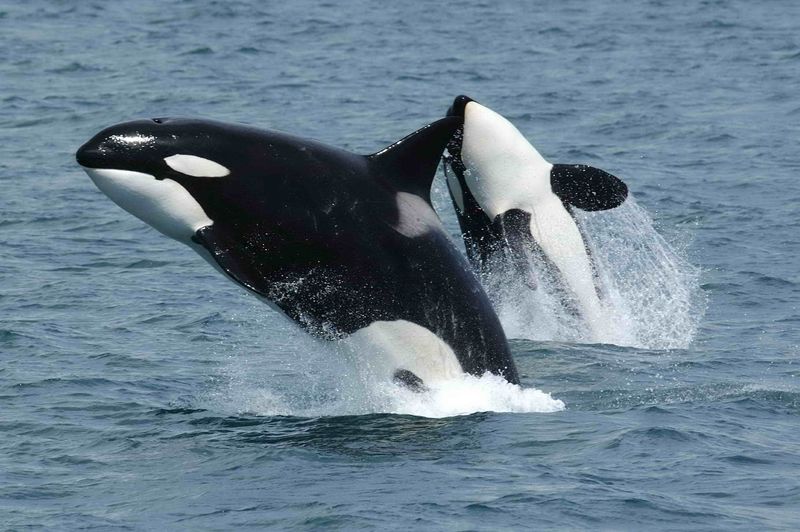
Orcas are known for their playful nature, often seen engaging in activities like breaching, spyhopping, and tail-slapping. These behaviors are not only for fun; they serve as social bonding exercises and methods to explore their environment. Picture a group of orcas joyfully leaping out of the water, their sleek bodies glistening in the sunlight. Their playfulness is a reflection of their curious and intelligent nature, making them a joy to observe. This playful behavior fosters strong social connections and demonstrates their ability to engage with their environment creatively.
Cultural Traditions
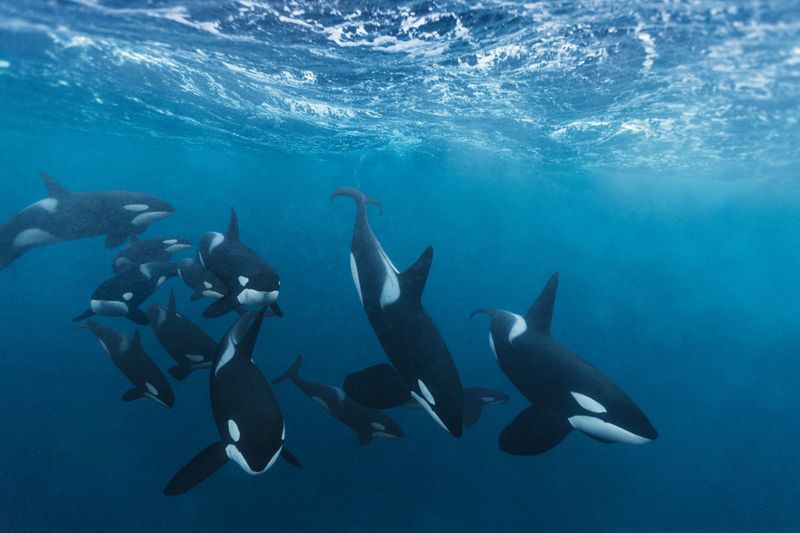
Orcas exhibit cultural traditions, where knowledge and behaviors are passed down through generations. Each pod has its own set of traditions, from hunting techniques to social interactions. Imagine a grandmother orca teaching her grandchildren the secrets of the hunt. This transmission of culture is a rare trait in the animal world and showcases their intelligence and social complexity. It’s a fascinating glimpse into their world, where culture and tradition play a vital role in their survival. These cultural traditions highlight their ability to learn and adapt, making them even more intriguing.
Amazing Navigation Skills
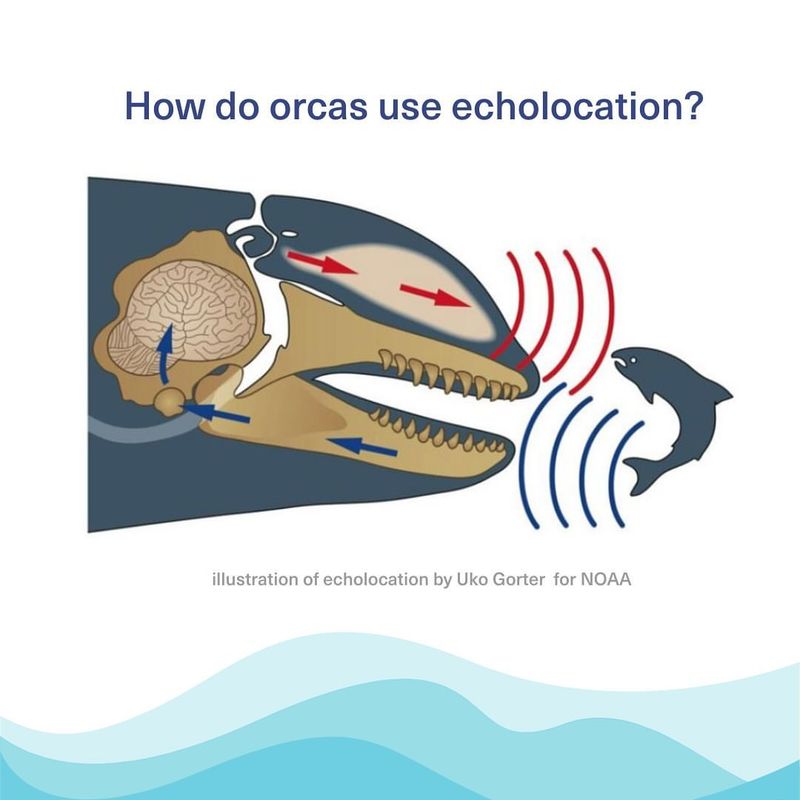
Orcas possess extraordinary navigation skills, relying on echolocation to travel through the vast oceans. This ability allows them to locate prey, avoid obstacles, and communicate with other orcas. Picture an orca gliding effortlessly through the water, its clicks bouncing off objects and returning as echoes. Their keen sense of direction and spatial awareness are vital for their survival, underscoring their intelligence and adaptability. This remarkable navigation ability is a testament to their cognitive skills, enabling them to thrive in diverse marine environments.
Orcas and Human Interaction
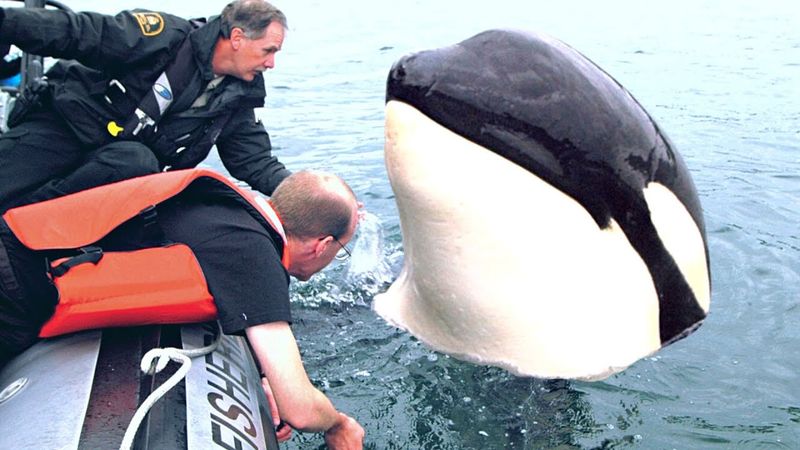
Orcas have been known to interact with humans, displaying curiosity and intelligence. In some cases, they approach boats and even engage in playful behaviors. This interaction illustrates their ability to understand and connect with other species. Imagine an orca playfully swimming alongside a boat, its eyes filled with curiosity. These interactions showcase their intelligence and adaptability, fostering a sense of wonder and connection between humans and these magnificent creatures. Their ability to engage with humans highlights their cognitive abilities and complex social nature.
Orcas’ Powerful Physique
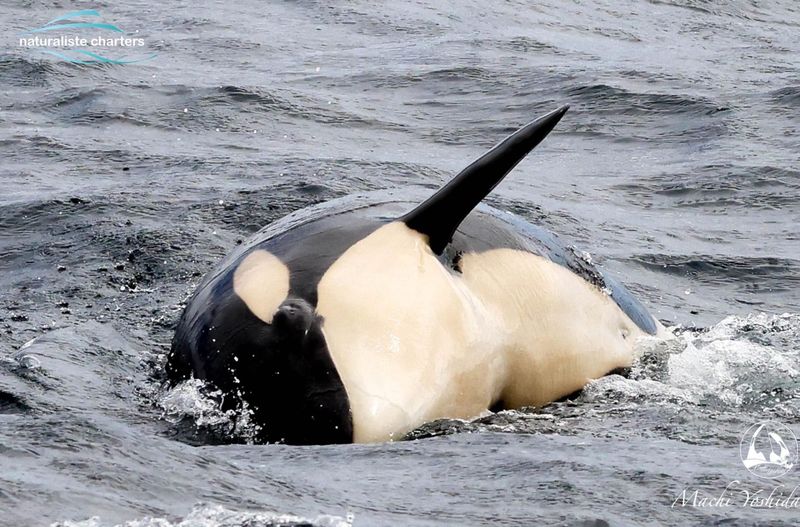
Orcas are known for their powerful physique, with strong muscular bodies capable of impressive feats. Their strength is evident in their ability to breach, swim at high speeds, and hunt large prey. Picture an orca leaping out of the water, its immense strength propelling it skyward. This physical prowess is a testament to their adaptability and dominance in the ocean. Their powerful bodies, combined with their intelligence, make them one of the most formidable predators in the marine world. This strength and agility are key to their survival and success in diverse environments.
Orcas’ Unique Hunting Partnerships
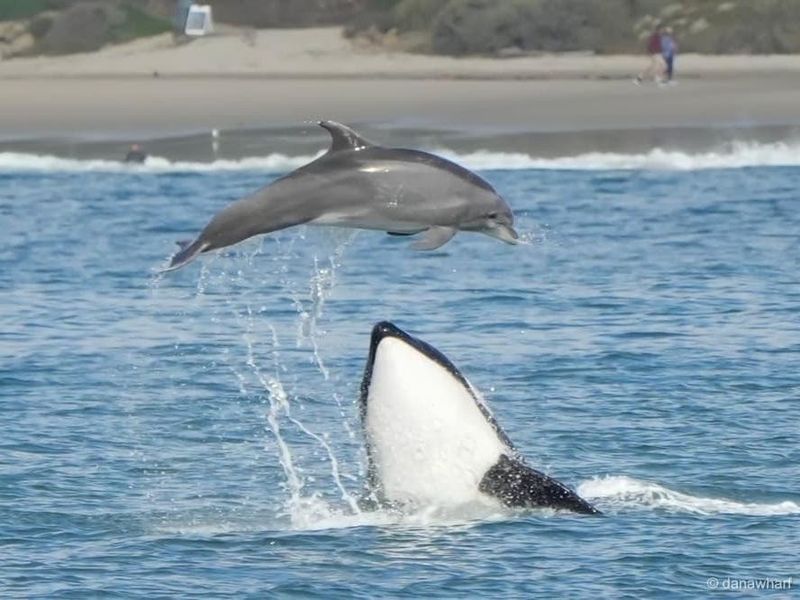
Orcas are known to form unique hunting partnerships with other species, such as dolphins. These collaborations highlight their intelligence and ability to adapt to various hunting strategies. Imagine an orca working alongside dolphins, each playing a role in the hunt. This cooperation benefits both parties, allowing them to access a wider range of prey. These unique partnerships are a testament to their social intelligence and flexibility. Their ability to collaborate with other species demonstrates their adaptability and strategic thinking, making them one of the ocean’s most versatile hunters.
Orcas’ Role in Ecosystem
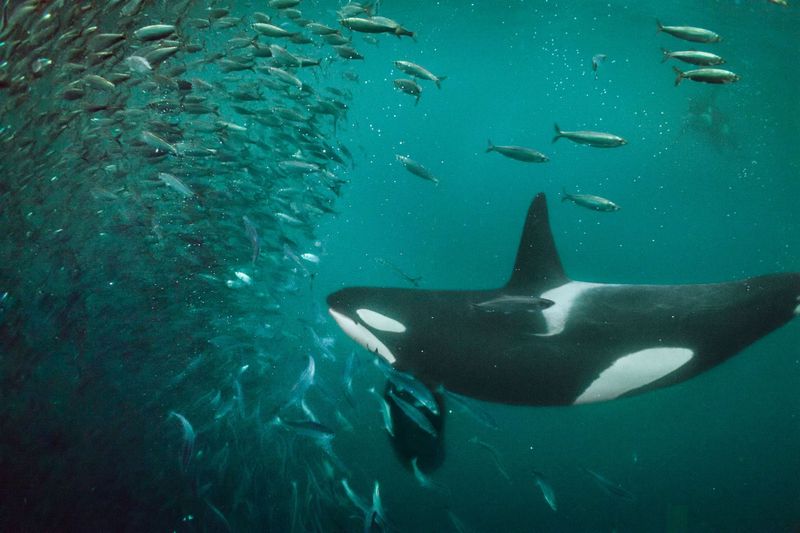
Orcas play a crucial role in maintaining the balance of marine ecosystems. As apex predators, they regulate the populations of prey species, ensuring a healthy and balanced environment. Picture an orca patrolling its territory, its presence a key factor in the ocean’s delicate balance. Their influence on the ecosystem is vital, as it affects the biodiversity and health of marine life. This role highlights their importance in the ocean’s food chain and underscores their power and intelligence. Their presence is a reminder of the interconnectedness of life in the ocean.
Orcas’ Lifespan and Longevity
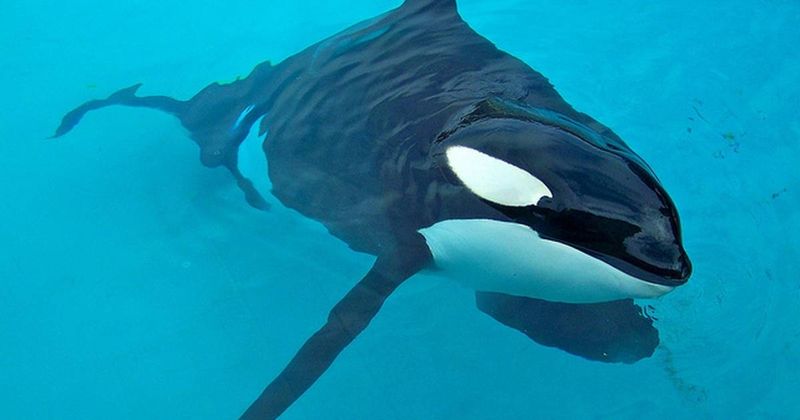
Orcas are known for their impressive lifespan, with some living up to 90 years. This longevity allows them to accumulate knowledge and experience, passing it down to younger generations. Imagine an elderly orca swimming gracefully, its wisdom reflected in its eyes. Their long lifespan is a testament to their adaptability and resilience in the wild. This longevity ensures the continuity of cultural traditions and social structures within pods. The wisdom and experience of older orcas play a vital role in the survival and success of their family groups, highlighting their intelligence and social bonds.
Orcas’ Diverse Diet
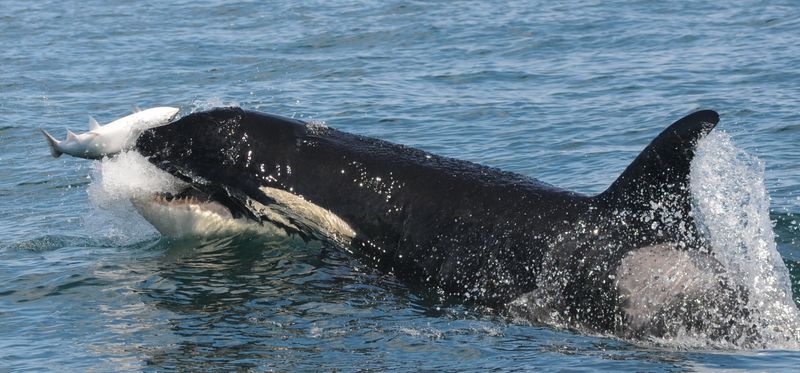
Orcas have a diverse diet, preying on fish, squid, and even marine mammals like seals and whales. This adaptability in feeding habits reflects their intelligence and ability to thrive in various environments. Picture an orca chasing a school of fish, its hunting skills honed to perfection. Their diverse diet allows them to survive in different regions, from the icy waters of the Arctic to tropical seas. This varied palate demonstrates their adaptability and strategic thinking, making them one of the ocean’s most versatile predators. Their ability to adjust their diet ensures their survival and success.
Orcas’ Social Structures
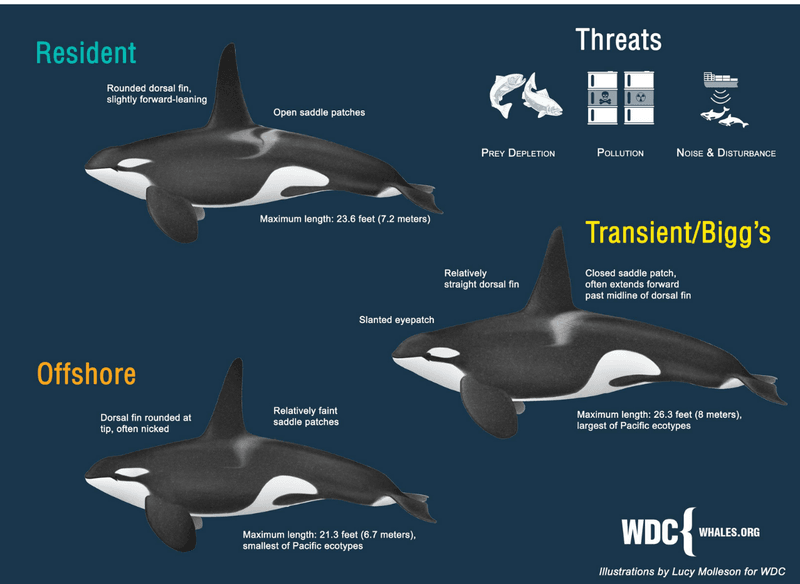
Orcas are known for their complex social structures, with defined roles and hierarchies within pods. Each member has a specific role, contributing to the group’s success and survival. Imagine a well-organized team, where every individual plays a vital part in the larger picture. These social structures reflect their intelligence and ability to cooperate, ensuring the survival and prosperity of the pod. The intricate social dynamics within orca groups highlight their adaptability and cognitive skills, making them one of the most socially complex marine mammals. Their social intelligence is a key factor in their success.
Orcas in Popular Culture
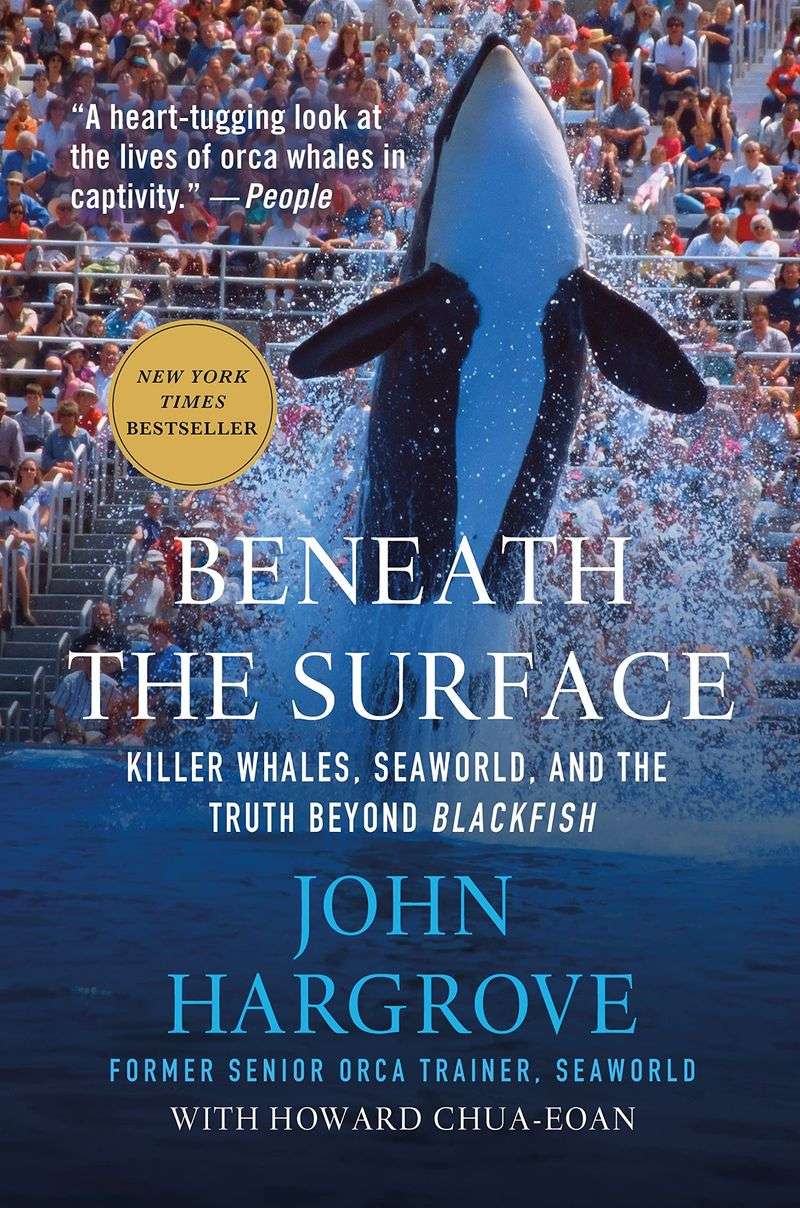
Orcas have left a significant mark on popular culture, often depicted in movies, books, and art. Their intelligence and power have captured human imagination, making them symbols of the ocean’s mystery and beauty. Picture an orca gracefully leaping on a movie screen, its presence evoking awe and wonder. Their portrayal in popular culture highlights their impact on our perception of marine life. This cultural influence underscores their importance and fascination, making them iconic creatures in the human imagination. Their presence in art and media reflects our admiration and curiosity about these magnificent animals.
Orcas’ Emotional Intelligence
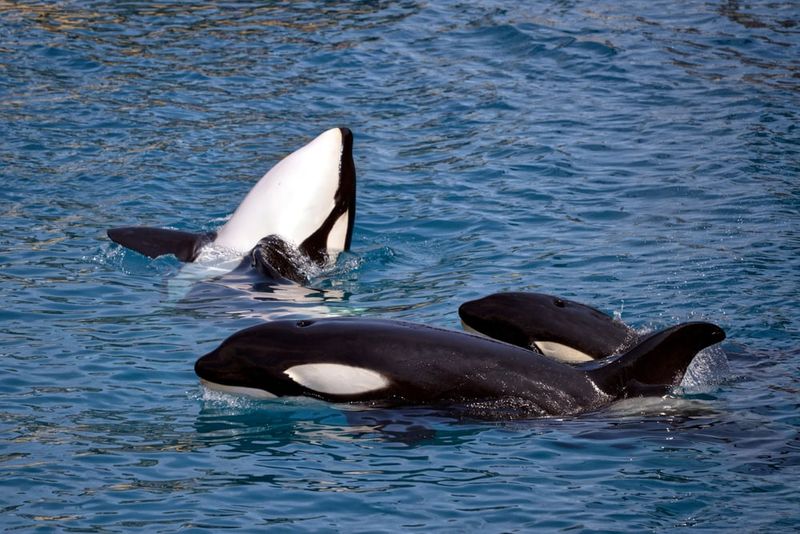
Orcas exhibit emotional intelligence, displaying empathy and care for one another. This ability to understand and respond to the emotions of others is a reflection of their complex social nature. Imagine an orca comforting a distressed pod member, its gentle actions conveying understanding and support. Their emotional intelligence is vital for maintaining strong social bonds and cooperation within the pod. This trait highlights their cognitive abilities and social complexity, making them one of the most emotionally intelligent marine species. Their understanding of emotions enhances their social interactions and community strength.
Orcas’ Adaptability to Climate
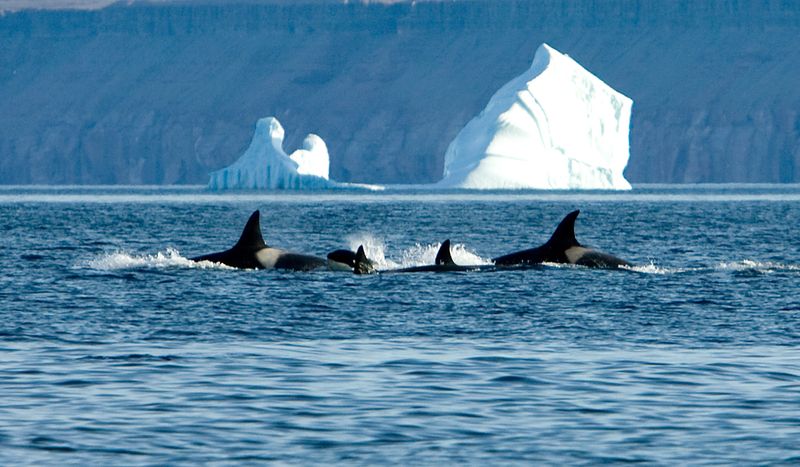
Orcas are highly adaptable, thriving in various climates, from the icy waters of the Arctic to temperate seas. This adaptability ensures their survival in diverse environments, reflecting their intelligence and resilience. Picture an orca gliding through the frigid waters of the Arctic, its body perfectly adapted to the cold. Their ability to thrive in different climates showcases their versatility and strategic thinking. This adaptability is a key factor in their success as a species, enabling them to explore and inhabit a wide range of marine habitats.
Unique Vocal Patterns
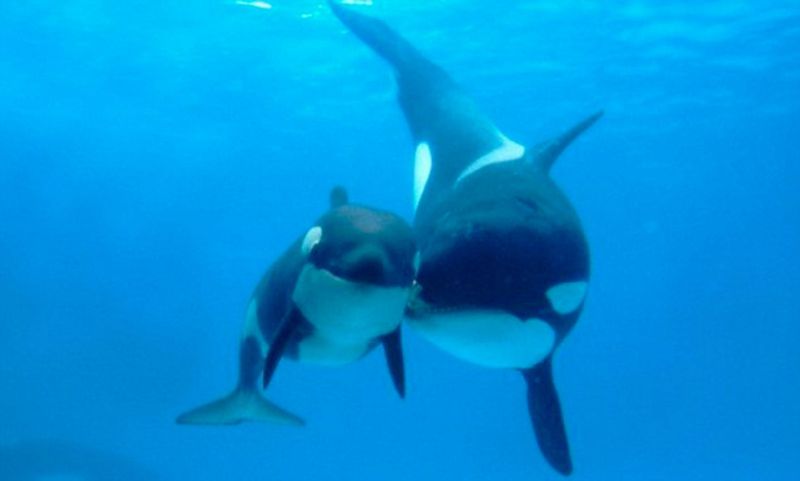
Orcas possess unique vocal patterns, with each pod having its own dialect. These distinct sounds are essential for communication and social bonding within the group. Imagine an orca producing a symphony of clicks and whistles, each note carrying meaning and emotion. Their vocal diversity is a reflection of their intelligence and social complexity. These unique vocal patterns allow them to maintain strong connections with their pod members, ensuring cooperation and coordination. Their ability to communicate through distinct sounds highlights their cognitive skills and adaptability in the marine environment.
Orcas’ Role in Indigenous Cultures
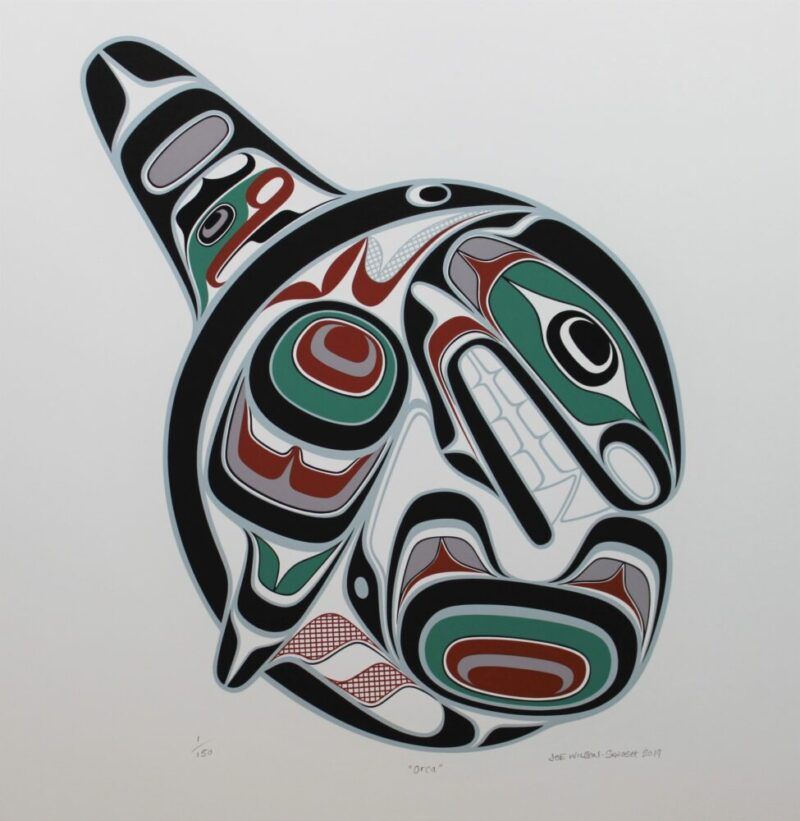
Orcas hold significant cultural importance in many Indigenous cultures, often seen as symbols of strength, power, and harmony. They are featured in art, stories, and traditions, representing the deep connection between humans and the ocean. Imagine an orca beautifully carved into a piece of Indigenous art, its form embodying cultural wisdom and reverence. This cultural significance underscores their impact on human societies and highlights the respect and admiration Indigenous peoples have for these majestic creatures. Their role in Indigenous cultures reflects their power and presence in the natural world.

